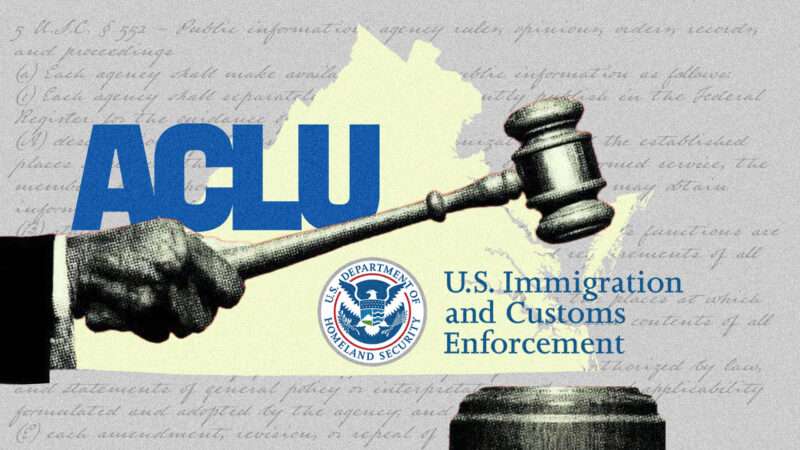
The American Civil Liberties Union (ACLU) and its Virginia and North Carolina affiliates have filed a lawsuit against Immigration and Customs Enforcement (ICE), requesting the release of records detailing the agency's planned expansion of detention centers in Virginia.
The lawsuit, which was filed on October 1 in the United States District Court for the Southern District of New York, stems from a Request for Information (RFI) issued by ICE on May 28. The RFI sought to identify "single adult facilities" within a two-hour drive of Richmond International Airport in Virginia with 1,000 to 1,500 beds, to serve as additional ICE detention centers under the jurisdiction of the agency's D.C. Enforcement and Removal Operations division.
On August 8, the ACLU submitted a Freedom of Information Act (FOIA) request seeking all records related to the solicitation—including submitted proposals, internal communications, and evaluation records. Under FOIA, federal agencies are required to respond to requests within 20 business days, but can be granted a 10-day extension in certain situations if they notify the requester in writing and explain the need for more time. ICE acknowledged receiving the ACLU's request and invoked a 10-day extension, but never followed up or produced any documents. The ACLU states in its filing that it has "exhausted all administrative remedies regarding [ICE's] failure to respond."
"This lawsuit is about transparency and accountability," Michele Delgado, an attorney with the ACLU of North Carolina, said in a press release. "The public has a right to know how ICE is planning to expand its network of detention centers, especially when tens of thousands of people are already held in these facilities every day under conditions that raise serious human rights concerns."
Under President Donald Trump's expensive immigration crackdown, ICE has rapidly expanded its detention facilities, which has drawn mounting legal scrutiny and allegations of civil rights abuses. In the agency's temporary holding facility in Chantilly, Virginia, detainees have allegedly been denied meals, basic medical care, and access to due process, according to a recent MSNBC investigation. The same pattern of humanitarian and due‑process concerns has surfaced in other detention sites, including Alligator Alcatraz and several other facilities in Florida.
The Virginia case is only the latest in a growing wave of litigation aimed at exposing the Department of Homeland Security, of which ICE is a part, and its quiet efforts to expand detention infrastructure. In September, the ACLU of Colorado filed a similar lawsuit to the one in Virginia, after ICE failed to comply with a FOIA request filed by the nonprofit, which sought records about the agency's detention expansion plans in the state and neighboring Wyoming. This pattern is hardly unusual—ICE has long denied, ignored, or stonewalled FOIA requests from journalists and watchdogs, frequently failing to meet statutory deadlines, according to the Columbia Journalism Review.
The ACLU's lawsuit against ICE operations in Virginia could force the agency to disclose its rapid expansion plans for the state—as past cases raised by the nonprofit have done. While this might provide an important piece of oversight to Trump's mass deportation agenda, it would likely do little to stop the due process and constitutional rights violations that the agency continues to perpetrate.
The post Civil Rights Group Sues ICE for Withholding Records of the Agency's Detention Expansion Plans in Virginia appeared first on Reason.com.







